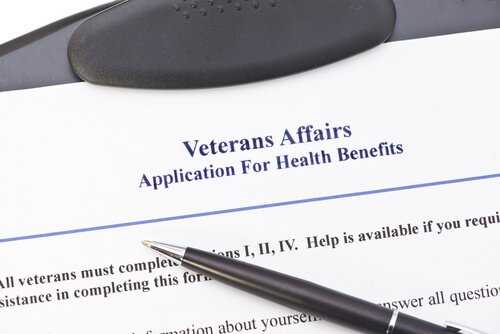
“A man who runs the risk of shedding his blood for his country is good enough to be given a square deal afterwards. More than that no man is entitled and less than that no man shall have.” – Teddy Roosevelt, July 4, 1903
In history, no individual has done more for the freedom and liberty of total strangers than the American soldier, marine, airman or sailor. Unfortunately, in protecting these values throughout the world, service members often sustain injuries. Even more unfortunately, many service members are not aware they are entitled to compensation for their injuries.
At Berry Law, we help veterans from across the country including Alaska, Alabama, Arkansas, Arizona, California, Colorado, Connecticut, Delaware, Florida, Georgia, Idaho, Maine, Maryland, Massachusetts, Michigan, Missouri, Montana, Nebraska, Nevada, New Hampshire, New Jersey, New Mexico, North Carolina, North Dakota, Ohio, Oklahoma, Rhode Island, South Dakota, Texas, Utah, Vermont, Virginia, Washington D.C., West Virginia, Wisconsin, Wyoming, Puerto Rico, the Philippines, Guam, and from all branches of the military to understand their right to receive U.S. Department of Veterans Affairs (VA) disability benefits as well as their right to appeal a denied claim, inadequate disability rating and other issues.
We are veterans who are dedicated to serving other veterans. To learn more, contact us today. We can review your case and answer any questions you may have about your right to VA disability benefits.
Some veterans believe that only those who suffered injuries in battle qualify for VA disability benefits. However, the VA does not limit disability compensation to veterans who suffered incapacitating wartime injuries.
Instead, a veteran may qualify for benefits if the veteran currently suffers from a disability that is the result of a disease or injury incurred or aggravated during active military service of any kind.
The law reflects the reality that a significant portion of a military force actually engages in support activities, not direct combat operations. Most service members suffer injuries while performing ordinary tasks or training. Additionally, the law recognizes that a veteran who serves and suffers injury in peacetime is as injured as one who was harmed in combat.
A broad range of medical conditions trigger entitlement to VA disability benefits. They range from simple hearing loss (often diagnosed a quarter of a century or more after exposure to loud noises in service) to the partial or total loss of use of one’s extremities. They also include diseases such as cancer or diabetes and mental conditions such as depression and post-traumatic stress disorder (PTSD). Even veterans with drug and nicotine dependencies secondarily caused by a service-connected medical condition may have the right to receive VA disability benefits.
The VA bases the amount that a veteran receives in tax-free, monthly disability benefits on the extent that a service-connected disability (or a combination of disabilities) impacts a veteran’s ability to work. The VA rates a veteran’s disability in 10 percent increments, from 0 to 100 percent. The higher the rating, the more a veteran receives in compensation. To qualify for disability benefits, the veteran must score a rating of at least 10 percent.
A veteran must experience the administrative process that goes into obtaining disability compensation in order to believe just how complex and daunting the process can be. The system involves multiple tiers divided into geographic regions and many different decision-making levels, including the VA Regional Office, Board of Veterans’ Appeals and U.S. Court of Appeals for Veterans Claims.
An editorial in The Washington Post noted that “many veterans’ cases are as complicated as medical malpractice claims.” They require experienced advocates who can “analyze, evaluate and develop evidence relating to a vast number of mental and physical disabilities” and who can guide a claim through a series of procedural steps.
Fortunately, a veteran does not need to face this process alone. After years of debate, Congress recognized the need for legal representation sooner than later in the administrative process. In 2006, President George W. Bush signed The Veterans Benefits, Health Care and Information Technology Act. The law allows attorneys to enter an appearance to represent a veteran as early as the Notice of Disagreement (NOD) stage, or when a case is still in the hands of a VA Regional Office.
However, in order to assist a veteran with a claim for VA disability benefits, a lawyer must be accredited by the VA. By requiring accreditation, the VA seeks to ensure that anyone who represents a veteran is responsible and qualified. At Berry Law, our VA disability benefits attorneys have VA accreditation.
The words of General Washington best answer those who question the need of taking care of the ordinary serviceman:
“The willingness with which our young people are likely to serve in any war, no matter how justified, shall be directly proportional to how they perceive veterans of early wars were treated and appreciated by our nation.”
In short, taking care of our veterans makes our country stronger.
At Berry Law, we are committed to protecting the rights of disabled veterans from across the country and from all branches of the military. We assist those who suffered injuries in battle as well as those who were involved in non-combat operations.
If you suffer from a service-connected injury or illness, and you are struggling to understand your rights and how the veterans’ disability benefits appeals process works, contact our experienced VA disability benefits lawyers to discuss your case today.
Our monthly newsletter features about important and up-to-date veterans' law news, keeping you informed about the changes that matter.